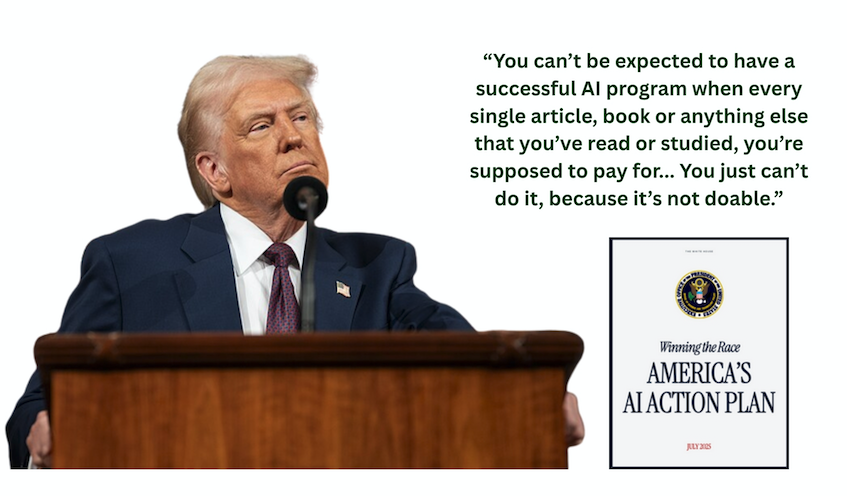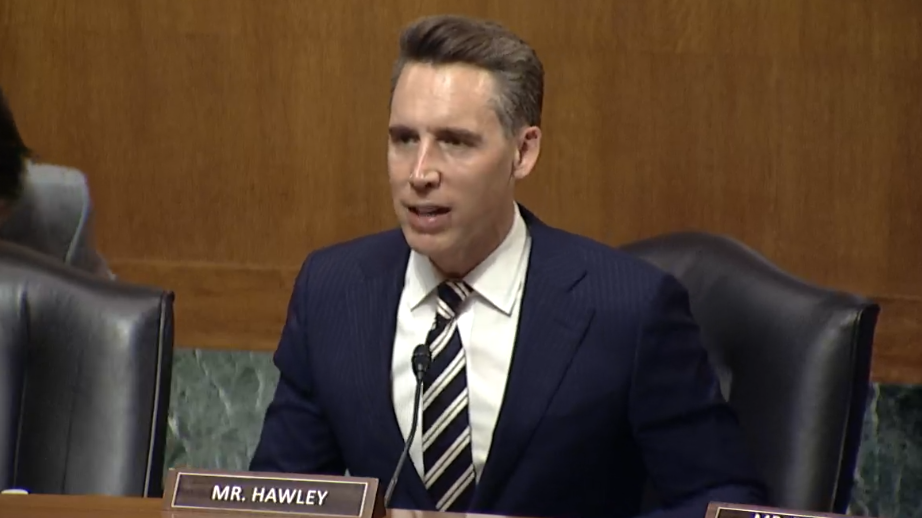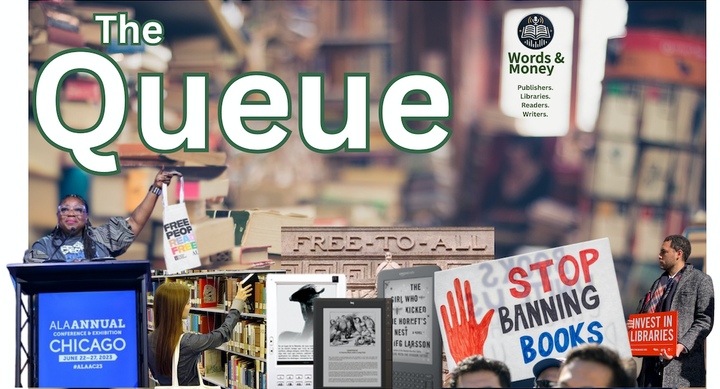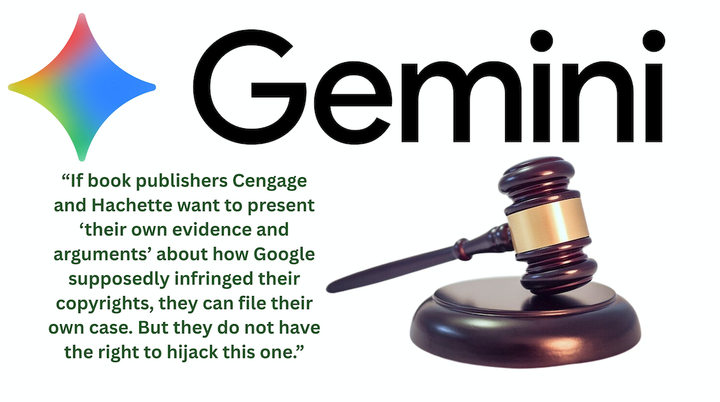Trump Administration's 'AI Action Plan' Snubs Creators
In the July 23 report, the Trump administration suggests that American tech companies "must be unencumbered by bureaucratic red tape," to win an AI arms race with China. But the report is also notable for what's not in it—any discussion of copyright or the impact of AI on the creative economy.

In a highly anticipated report on AI, the Trump Administration this week signaled its intent to give the tech industry a free hand to advance the technology, dismissing an array of environmental, cultural, and economic concerns and snubbing entirely the concerns of creators.
Despite growing calls for "guardrails" on AI's development, the 23-page report released on July 23—Winning the Race: America's AI Action Plan—proposes that the government refrain from regulating AI at this stage. And despite dozens of lawsuits over unauthorized use of materials for training AI and myriad concerns raised by artists, authors, and the creative industries over AI's impact on the creative economy, the report fails to even mention the word copyright, focusing instead on winning what is presented as an AI arms race with China.
"Just like we won the space race, it is imperative that the United States
and its allies win this race," the report states. "An industrial revolution, an information revolution, and a renaissance—all at once. This is the potential that AI presents. The opportunity that stands before us is both inspiring and
humbling. And it is ours to seize, or to lose."
Pillars
The Trump administration plan focuses on three "pillars." The first is to unleash U.S. innovation by stripping "regulatory barriers" said to be hindering the work of tech companies.
"To maintain global leadership in AI, America’s private sector must be unencumbered by bureaucratic red tape," the report states, proposing that federal funding be withheld from states that pass "burdensome AI regulations," among its proposals.
But not all regulation: just weeks after Elon Musk's AI chatbot, Grok, went on an antisemitic tirade, the administration—under the guise of protecting free speech and promoting American values—does propose to regulate AI systems from alleged "ideological bias," an apparent reference to the Trump administration's attacks on so-called "wokeness" and diversity efforts. "We must ensure that free speech flourishes in the era of AI and that AI procured by the Federal government objectively reflects truth," the report states, "rather than social engineering agendas."
The report also focuses on the energy, worker training, and infrastructure needed to power an AI future, the key to which, the report states, is rejecting "radical climate dogma and bureaucratic red tape," while also promising "a worker-first" AI agenda.
"AI can help America build an economy that delivers more pathways to economic opportunity for American workers," the report notes, while also acknowledging that such a shift would involve massive worker displacement and "transform how work gets done across all industries and occupations." In response, the administration proposes to "pilot new innovations to rapidly retrain and help workers thrive in an AI-driven economy."
In a section certainly of interest in the academic and STM publishing sectors, the plan also seeks to pave the way for more "AI-enabled" science. "Like many other domains, science itself will be transformed by AI," the report notes. "This, in turn, will necessitate new infrastructure and support of new kinds of scientific organizations."
The second pillar of the report focuses on the need to upgrade the nation's energy infrastructure. Among its recommendations are proposals to make it easier to, among the administration’s priorities, build new data centers, encourage domestic semiconductor manufacturing, construct a new power grid for the nation, and pursue new security measures. This includes “reducing regulations promulgated under the Clean Air Act, the Clean Water Act, the Comprehensive Environmental Response, Compensation, and Liability Act.” The report also proposes to make federal lands available for data center construction.
The report's third pillar proposes to position the U.S. as the leader of a "global alliance" while "preventing our adversaries from free-riding on our innovation and investment."
While the report's suggests the administration supports "like-minded nations working together to encourage the development of AI," it alleges that current international efforts supported by "the United Nations, the Organization for Economic Cooperation and Development, G7, G20, International Telecommunication Union, and ICANN" advocate for "burdensome regulations, vague 'codes of conduct' that promote cultural agendas that do not align with American values, or have been influenced by Chinese companies attempting to shape standards for facial recognition and surveillance."
The report concludes by acknowledging that new and emerging national security threats in an AI world must be addressed.
"The most powerful AI systems may pose novel national security risks in the near future in areas such as cyberattacks and the development of chemical, biological, radiological, nuclear, or explosives (CBRNE) weapons, as well as novel security vulnerabilities," the report states. "Understanding the nature of these risks as they emerge is vital for national defense and homeland security."
What About the Creative Economy?

While there will surely be a robust debate over what's in the report, the debate will no doubt also include what isn't in the report—notably the concerns of artists and creators. Despite an onslaught of copyright litigation, lobbying efforts from several associations and industry groups, and submitting comments to the administration, the report fails to even mention the concerns of creators and the creative industries in the developing AI world.
In comments submitted in March, the Association of American Publishers urged the administration to reject Big Tech’s calls for policies that would "dismantle centuries of copyright law," noting that the "U.S. copyright industries" collectively added "more than $2.09 trillion in annual value" to the U.S. economy.
"By upholding U.S. intellectual property—including the copyright laws that protect and incentivize the ongoing investments of publishers and authors— the United States can signal to other nations that they must not weaken their own copyright laws," AAP officials told the administration. "At stake are the livelihoods of all creators who have helped to make the United States the leading voice on intellectual property in the digital age, and who are integral to the future success of lawful AI products."
But while the report ignores the concerns of many in the creative community, Trump personally dismissed copyright concerns at an event this week in which he unveiled the report.
"You can’t be expected to have a successful AI program when every single article, book or anything else that you’ve read or studied, you’re supposed to pay for,” Trump told attendees at an event in Washington, D.C. on Wednesday. “You just can’t do it, because it’s not doable.”
Notably, the report and the president's comments come just days after Missouri Senator Josh Hawley and Connecticut Senator Richard Blumenthal introduced bipartisan legislation "to protect consumers’ data rights and hold Big Tech companies accountable" for allegedly pirating copyrighted works to train their LLMs.
“AI companies are robbing the American people blind while leaving artists, writers, and other creators with zero recourse," Hawley said, in a statement. "My bipartisan legislation would finally empower working Americans who now find their livelihoods in the crosshairs of Big Tech’s lawlessness.”
The legislation follows a fiery Senate hearing on copyright and AI during which Hawley accused AI companies of the “the largest intellectual property theft in American history.”
Furthermore, the report's release also came on the same day that a federal judge heard former Register of Copyrights Shira Perlmutter's motion for a preliminary injunction seeking to reinstate her after the Trump Administration abruptly fired her in May. Perlmutter's firing came after she released the third part of a Copyright Office study that was highly critical of the tech industry's encroachment on intellectual property rights.
While opinions differ on whether using copyrighted works for LLM training is legal, the Trump administration's decision to snub the concerns of the creative communities in his administration's AI report should hardly be seen as him expressing a view about fair use. Indeed, the president has employed an expansive view of copyright to sue his critics in the past.
Just last week, a federal judge finally dismissed a 2023 Trump lawsuit against journalist Bob Woodward and publisher Simon & Schuster over tapes Woodward used in an audiobook, The Trump Tapes: The Historical Record. Trump had claimed a copyright interest the interviews recorded by by Woodward for his 2021 book Rage, and had sought nearly $50 million in damages.
In addition to the release of the report, Trump also signed three executive orders pertaining to AI, including one that targets diversity efforts.
This is a developing story. We will update with reactions to the report as they come in.


